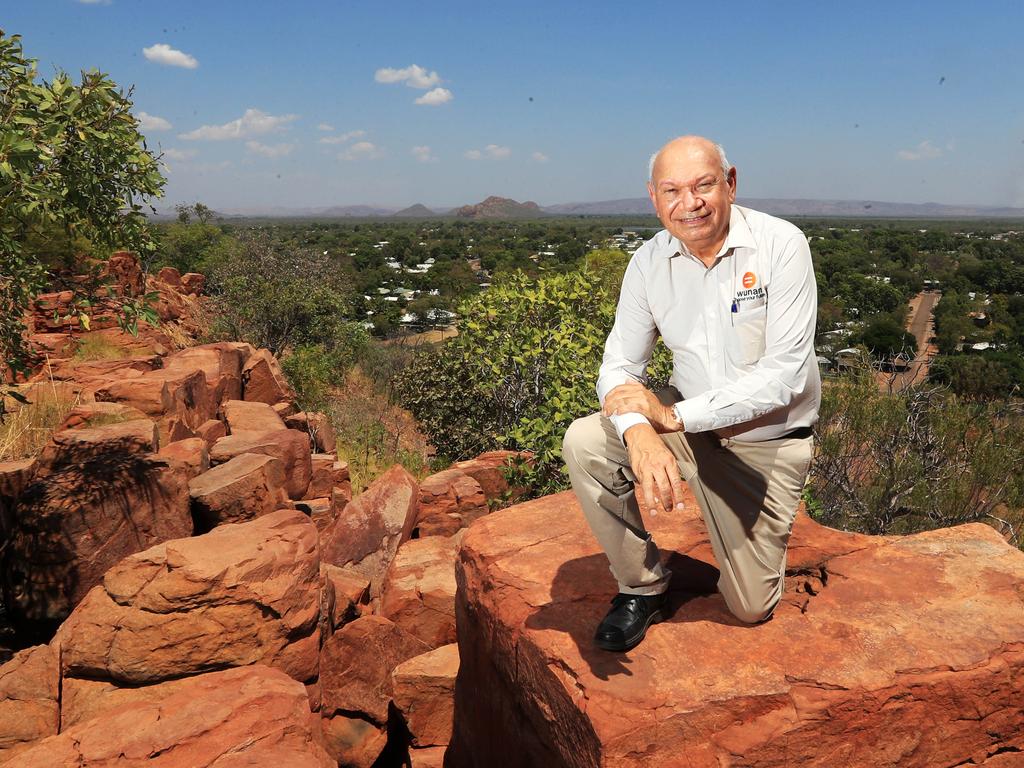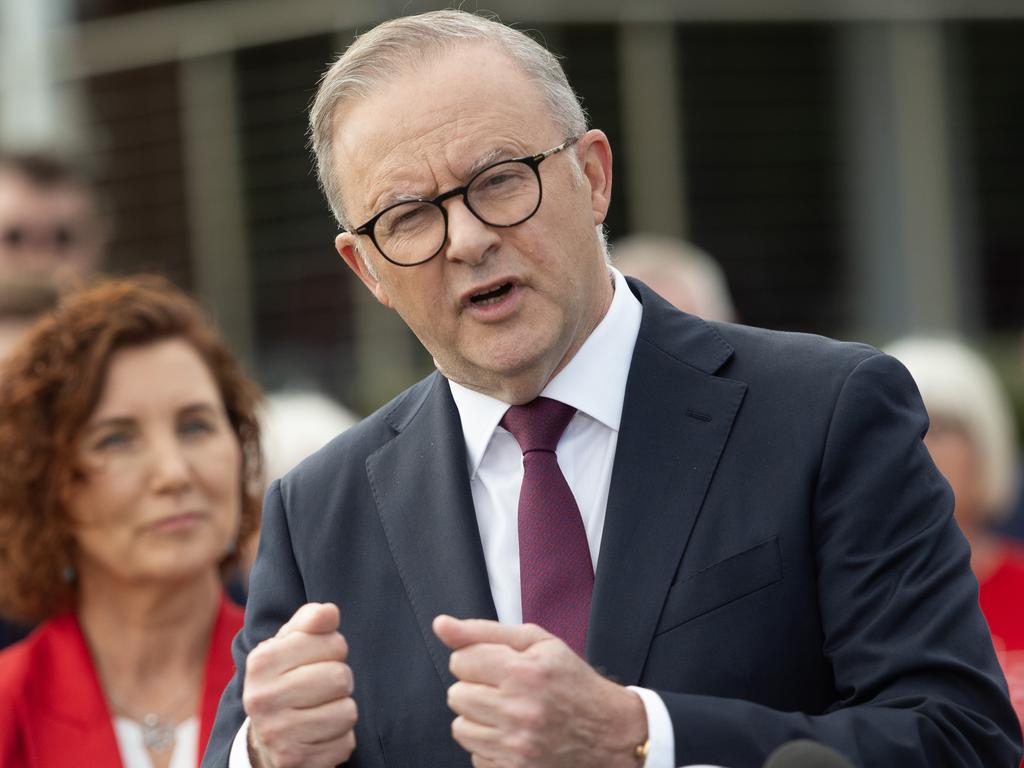Anthony Albanese’s remarks on truth telling and agreement making interpreted as delay tactics
Labor faces claims it is backing away from all three of the major Indigenous reforms it took to the 2022 federal election.

The federal government has moved to ameliorate claims it is backing away from all three of the major Indigenous reforms it took to the 2022 election but Anthony Albanese’s remarks about agreement making and truth telling have been interpreted as delay tactics and a palming off of responsibility to the states.
The Prime Minister said in parliament on Tuesday that his government would work towards a Makarrata commission and truth telling, which he backed on election night in 2022 when he endorsed the Uluru Statement from the Heart in full. The Uluru Statement comprises an Indigenous voice, then treaty then truth telling.
However, Mr Albanese said on Tuesday that it would “take time” to get Makaratta and truth telling right and his government’s immediate responsibilities in Indigenous affairs were on tangible results and self-determination to reduce disparity between Indigenous and non-Indigenous Australians, particularly in jobs, housing, education and justice.
This was seen by some Indigenous leaders as a clear sign that, since Australians said no to a constitutionally-enshrined voice at the referendum last October, the Commonwealth government was not interested in pursuing the other elements of the Uluru Statement.

As Labor released its Closing the Gap annual report, Mr Albanese said “the work of treaties goes on at state and territory levels”.
Uluru Dialogue member Eddie Synot told The Australian he understood the need for the government to be respectful of Indigenous communities that were hurting in the wake of the defeat of the voice referendum but said: ‘it’s time for leadership and the government should be leading on Makaratta and on a legislated voice”.
“People voted against a voice in the constitution, not the voice entirely,” Mr Synot, an Indigenous man and lecturer at Griffith University school of law, said.
Mr Synot said leaving treaties to states was not a good move because those treaty processes were under threat from oppositions that did not support them. In Queensland and Victoria for example, the treaty work there could be abandoned at the next state election if the current governments lost.
“Here we have a perfect opportunity after the referendum for the PM to step up,” Mr Synot said.
“Saying that we are going to take our time is just a poor excuse for inaction”.
Mr Albanese said the government wanted to “move reconciliation forward and seek better results for Indigenous Australians”.
“As we take the time to get Makarrata and truth telling right, the work of treaty goes on at the state and territory level, although it will be diversity processes, reflecting the diversity of first Nations across the continent and we will respond to their progress while focusing on our immediate responsibilities – Closing the Gap, self-determination and tangible outcomes, particularly in jobs, housing, education and justice,” he said.
According to the Uluru Statement from the Heart, a Makarrata Commission would “supervise a process of agreement-making between governments and First Nations and truth-telling about our history”.
Despite having put aside more than $5m for Makarrata over the forwards, Labor has not been clear on what the next steps will be after the failed referendum.
Mr Albanese said it was clear “the status quo is unacceptable”.
“Our approach has to change. Making progress depends on listening to people and communities,” he said.
“The government is committed to the ongoing national agreement on Closing the Gap. We are determined to work with Aboriginal and Torres Strait Islander people to create new opportunities and achieve better outcomes at a local level.”
Mr Albanese also announced a national commissioner for Aboriginal and Torres Strait Islander children and young people would be established.
The commissioner will be dedicated to protecting and promoting the rights, interests and wellbeing of Indigenous children, with an interim commissioner to be appointed this year.
Mr Albanese said Australians should pause to consider the nation was going backwards in Closing the Gap for Indigenous Australians in areas including children’s early development, rates of children out of home care, rates of adult imprisonment and suicide rates.
Greens, Labor and Coalition Senators joined MPS in the House for the occasion.

The PM also said that Canberra “must be willing to share power” with Indigenous communities in order to truly Close the Gap.
“If we want to Close the Gap, we have to listen to people who live on the other side of it,” he told the lower house.
“Canberra must be willing to share power with communities, to offer responsibility and ownership and self-determination, to let local knowledge design programs, to trust locals to deliver them and to listen to locals when they tell us what is working and what is not.
“That is a culture change that we have to drive in this building, in the public service and across governments at all levels. The price of failure over successive governments is not just counted in dollars, it is measured in lives.”
The Prime Minister said the Productivity Commission had “outlined the case for a new approach”, after the milestone report declared the Closing the Gap initiative would fail without fundamental change.
“Greater co-operation is key to sustained progress,” he said.
“We remain committed to Australians having a shared understanding of our history and the united vision for our future, a future shaped by self-determination.
“There is so much more that we can do, so much more that we must do.”







To join the conversation, please log in. Don't have an account? Register
Join the conversation, you are commenting as Logout